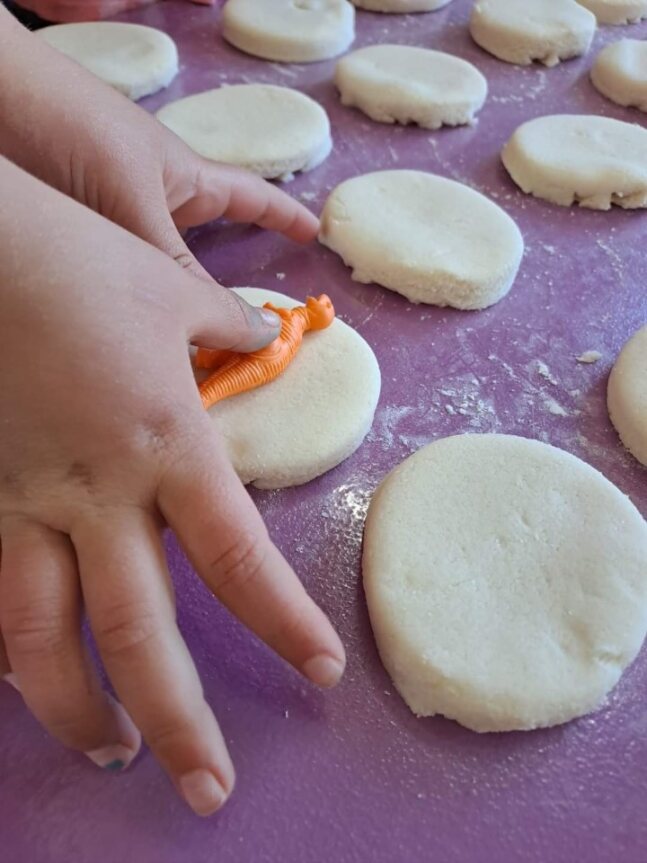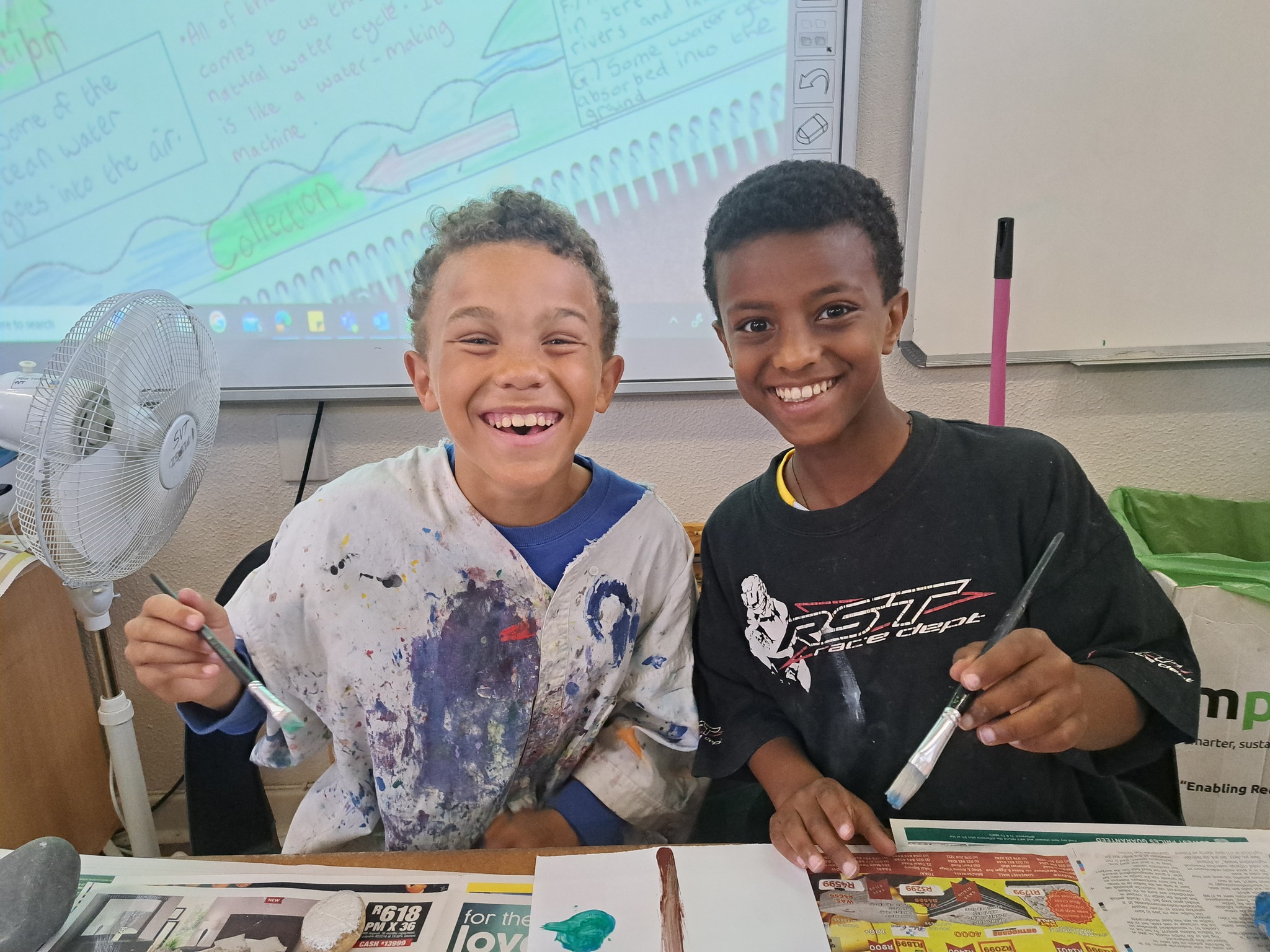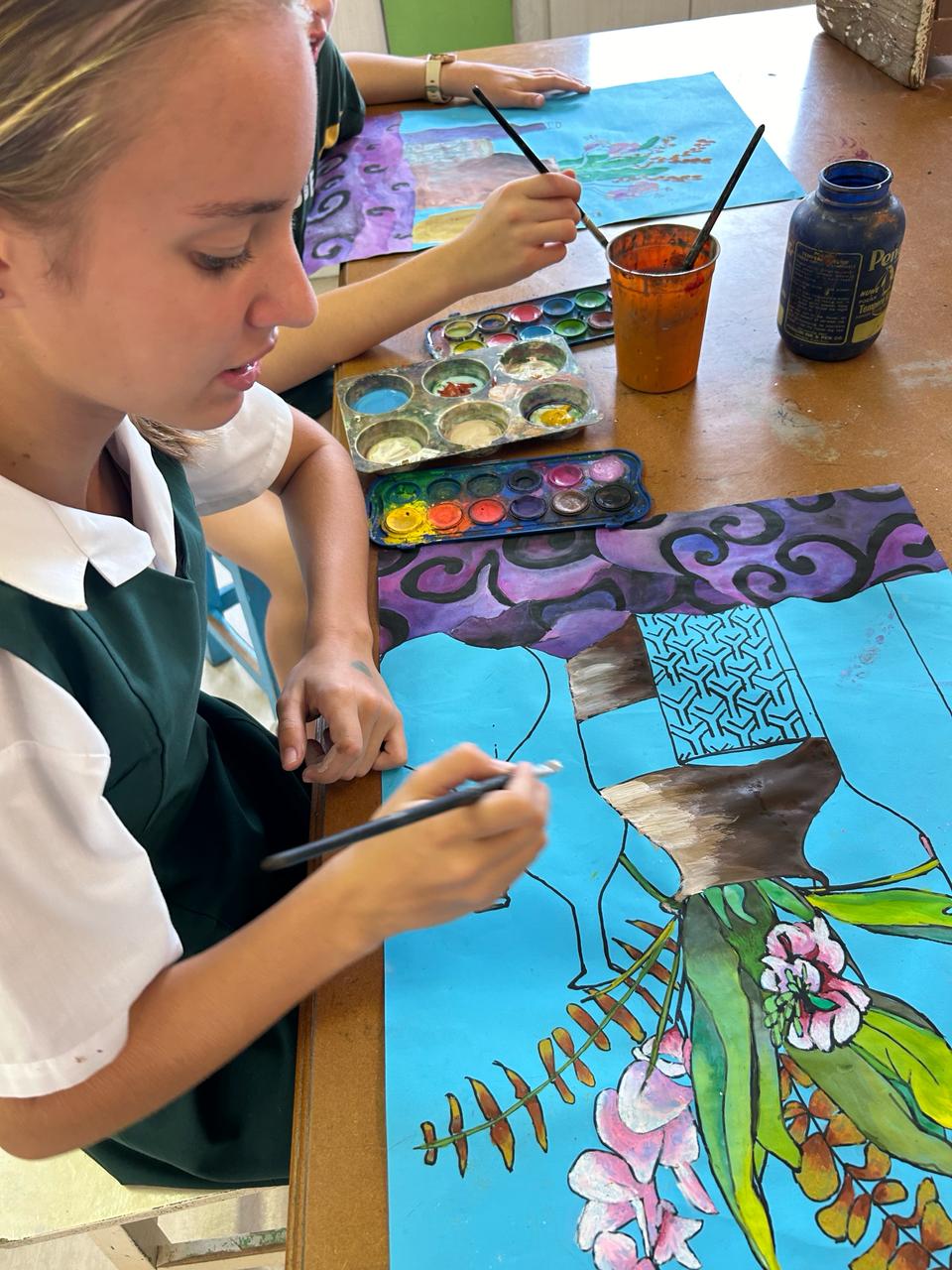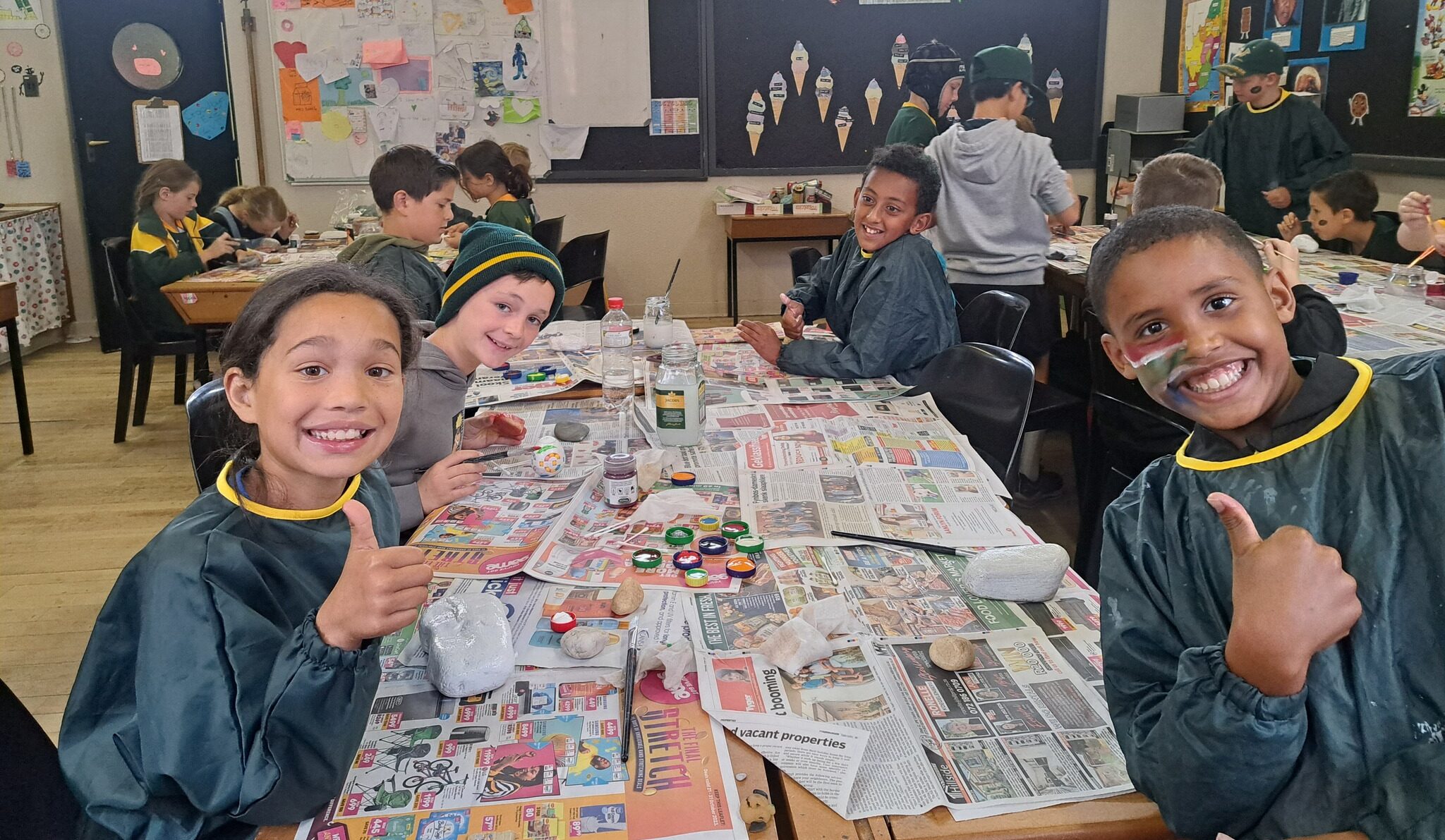Die rol van kuns in die ontwikkeling van die kind.
Kuns speel ’n baie belangrike rol in die optimale ontwikkeling van die totale mens. In die klaskamer besit kuns die potensiaal om die basis vir optimale leer te verbreed deur middel van onder andere die volgende: verhoogde sensoriese bewustheid, verbeterde verbale en nie-verbale kommunikasie, verbeterde samewerkingsvaardighede, probleemoplossings-vaardighede, verhoogde kreatiwiteit, ontwikkeling van groot en fyn motoriese vaardighede, verlaging van stres (d.m.v. emosionele ontlading), kognitiewe, kinestetiese en estetiese ontwikkeling, verhoogde sensitiwiteit vir diversiteit, verbetering van die selfbeeld, die ontwikkeling van selfdissipline en organisatoriese vermoëns, ens.
In die tye waarin ons leef, gebeur alles teen ‘n dolle gejaag. Dinge moet NOU gebeur, kits oplossings word gesoek, druk ‘n knoppie op die rekenaar en jy het onmiddelik inligting, ry deur die “drive through” en jy het kos binne vyf minunte.
Met die skep van ‘n kunswerk gebeur alles nie onmiddelik nie. Die kind leer om met geduld sy werk te skep. Om iets met jou hande te maak neem tyd. Dit gebeur nie binne vyf minute nie. Dit leer die kind deursettingsvermoё en dan kry hy / sy ook daardie gevoel van trots as hy na sy voltooide werk kyk en weet hy het hard gewerk om dit te bereik.
Vir baie leerders is dit ‘n tyd waarin hulle kan ontspan en hulle hoef hulle nie te bekommer om die beste daarin te wees nie. Hulle begin met ander oё na dinge rondom hulle kyk. Hulle sien nie net dinge raak nie, maar neem waar. Die fyner detail word raakgesien.
Elke mens het kuns in sy lewe nodig. Dit vorm die mens se kultuur en wese.
My mother said to me, ‘If you are a soldier, you will become a general. If you are a monk, you will become the Pope.’ Instead, I was a painter and became Picasso.
Pablo Picasso
Art washes away from the soul the dust of everyday life.

Pablo Picasso
The importance of Art in the school curriculum.
People are often unaware of the importance of Art as a subject at school. It is probably because the learners are subjected to the principles and elements of Art in a fun, playful and relaxing manner, which is totally different to the structured manner of the stereotyped classroom. The Art Room allows a learner the freedom to make their own decisions, take risks, be responsible for their actions and offer self-expression in their tasks.
Through experimentation with media, the learners discover the ideas of using dark and light or dull and bright for contrasts, of creating big and small shapes for variety, of repeating a shape or colour to achieve pattern or unity, and of drawing things large enough to fill the page. Through practice, the learners develop creative confidence and attain discriminating design awareness, by repeating the Art principles and design components namely: line, pattern, colour, shape, form, texture, and space. Children who express their responses, their ideas, and their reactions with honesty and sensitivity in a framework of compositional design, create ART.
Through Art, a child will notice more about people, and will become more aware of their environment and this is a unique avenue to mental, social and individual growth.
Extra Mural Art:
This after-school activity affords the learner more practice in the principles and elements of Art. It is an informal way of learning and exploring various art mediums and techniques. e.g. pastels, paint (powder, watercolour, acrylic and fabric), ink, dye, pencils, cloth, starch, paper maché and recycled objects. Extra Art aims to learn to create, building self-confidence and self-worth in a fun, light-hearted manner.
Extra Art Times:
Classes are held at the following times:
| TIME | Grade | TIME |
| Monday: | Gr 1 & 2 | 14:00 – 15:00 |
| Gr 3 | 15:00 – 16:00 | |
| Gr 4 & 5 | 14:30 – 15:30 | |
| Tuesday: | Gr 1 & 2 | 14:00 – 15:00 |
| Gr 3 | 15:00 – 16:00 | |
| Gr 4 & 5 | 14:30 – 15:30 | |
| Wednesday: | Gr 1 & 2 | 14:00 – 15:00 |
| Gr 6 & 7 | 14:30 – 15:30 | |
| Thursday: | Gr 1 & 2 | 14:00 – 15:00 |
| Gr 6 & 7 | 14:30 – 15:30 |
It is important that parents should book a time-slot for their child/ren at the office, as we do not want to overfill the classes.

